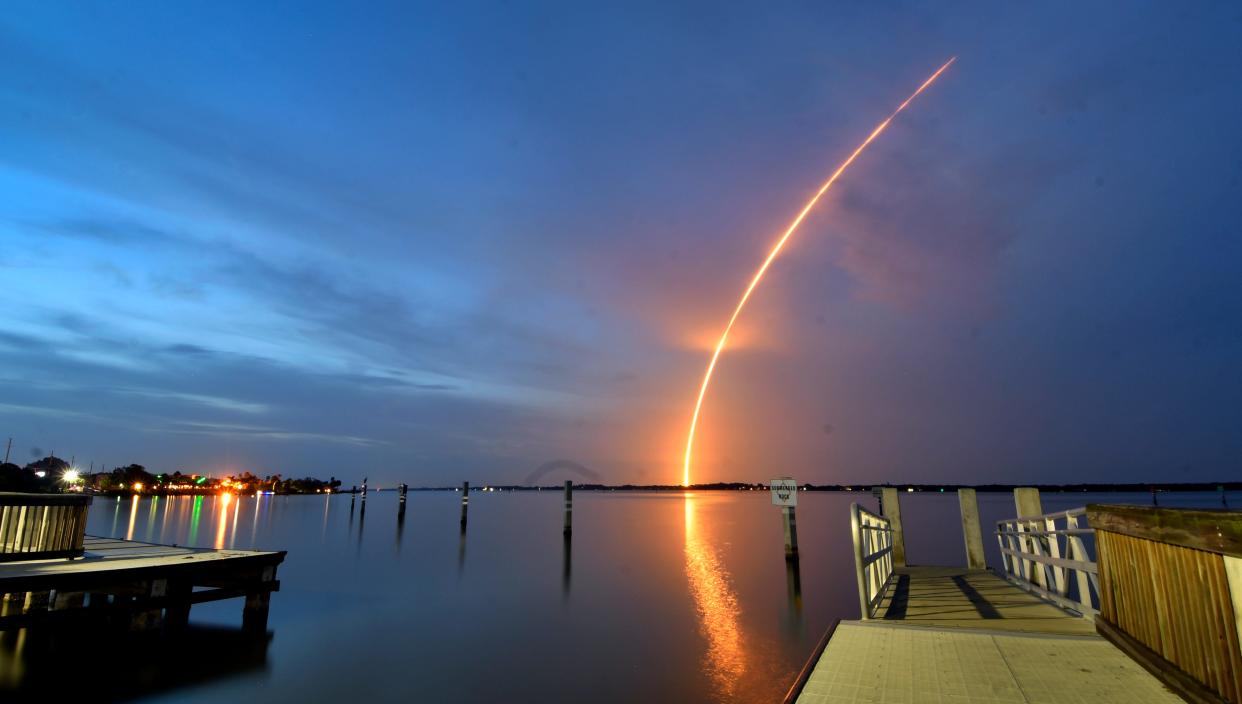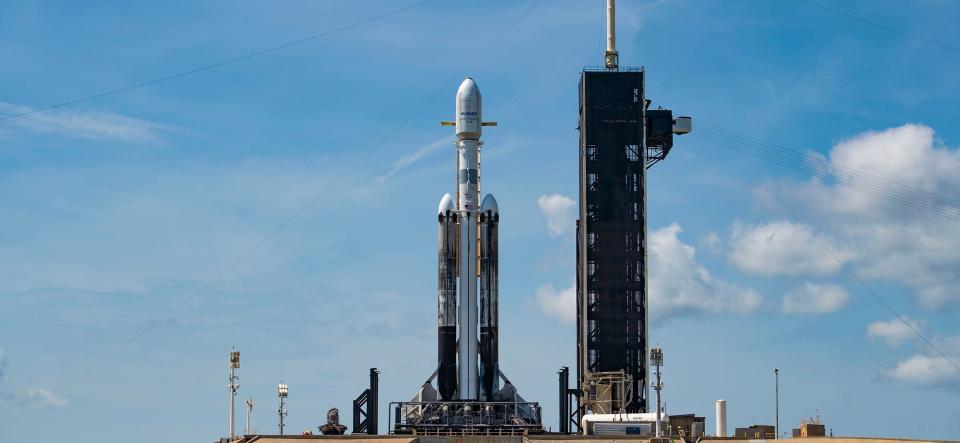Indiana University launches space law courses, satellite cybersecurity program

Interested in combatting cyber attacks waging on over 22,000 miles above your head? How about learning how to become a space lawyer (yes, that's a real thing)? There's a new dedicated space carved out at Indiana University just for you.
A few rising stars at IU will explore a new slate of outer space-related courses launching on campus this fall. As part of IU's new mission to train an ever-expanding space workforce, the university will host a series of law and cybersecurity classes through the IU Space Governance Policy Lab.
What is space law?
Don't feel bad if you've never heard of it. It was once new to Dr. Eytan Tepper, too.
Tepper is the IU space lab's inaugural director. For years, he's helped spearhead innovative research into space governance, but it wasn't too long ago he was left scratching his head at the idea of "outer space law."
"I never knew that there is such a thing," Tepper said, later adding. "By accident, I heard something about it, and I started reading about it, and then it captured my imagination. I was doing international trade before this, and I totally left it. Since then, I devoted everything to space."
Because the concept can prompt initial thoughts of absurdity, it's important to note what space law is not — there is no "space jail" where naughty astronauts are remanded nor a "space courtroom" where gravity-defying judges reign supreme. Rather, space law is a body of law regulating anything done in outer space, as well as any space activities conducted on Earth. It sets the permissions and parameters for various activities, such as weapon usage, technology launches, exploration efforts and environmental impact.
Who governs outer space? 'It's complicated'
While working toward his doctorate degree from the McGill Institute of Air and Space Law, Tepper was focused on answering a deceptively simple question: Who is in charge of what goes on in space?
"The answer is like many things in life. It's complicated," Tepper said.
While outer space is often called the "final frontier," it may be more akin to the Wild West.
Space law is underpinned by a series of international treaties overseen by the United Nations Committee on the Peaceful Uses of Outer Space. In addition to these international laws, countries can place further stipulations on their own soil. In 2015, the U.S. Commercial Space Launch Competitiveness Act was signed, giving U.S. companies and citizens the right to own and sell natural resources mined from bodies in space such as asteroids. In addition to this very limited national legislation, the United States also hosts discussion-driven forums, where academics and officials reach agreements or common opinions on regulations that are simultaneously non-legally binding.
The five international treaties are the core legislation holding together space law, but with the most recent treaty being created in 1979 — nearly 50 years ago — Tepper and his contemporaries believe it's time for international regulation to catch up to the modern era, especially given widened accessibility and technological advances that have spawned a surge in space activity.
Learn about space governance, satellite cybersecurity at Indiana University
IU's joint JD-M.S. in Cybersecurity Risk Management program now allows interested law students to explore an added dimension of space governance. To what extent can military agencies use outer space? What is the environmental impact of launching so many satellites? Who should clean up the thousands of pieces of orbiting debris? What property rights can one have when it comes to mineral mining or celestial bodies?
"We're discussing space governance generally in how the rules are made and also those topics, and we are discussing them from the point of view of not just the U.S. but also Russia, China, Europe, (and) Africa. At the end, what we'll get is a mix of all that," Tepper said.

This fall, IU also is launching courses on space cybersecurity and a new space cybersecurity certificate program. University personnel said the Kelley Space-Cybersecurity Digital Badge is the first program in the United States to offer a specialized focus on protecting the cybersecurity of space assets.
Space law may be expanding slowly, but the real-time need for space cyber-professionals has exploded. From the largest governmental body to the tiniest start-up company in Silicon Valley, each potentially can have a claim to launch and use satellite technology.
Space-based infrastructure touches more industries than one might think — from weather forecasting to broadband internet. Since 2015, when the U.S. implemented legislation encouraging private sector investment, the use of satellites has spiked. Scores of private and public data relies on satellite telecommunications and cyber-security concerns are being raised on how to best protect against attacks.
"I've heard from a few companies. When I told them about this new program, they said, 'If you have someone, we will hire them now,'" Tepper said. He said the lab is already in touch with bodies such as the Department of Homeland Security, National Aeronautics and Space Administration and smaller space firms for opportunities of student internships.
There's still time to sign up for some courses. For more, follow the webpage at https://shorturl.at/kG069.
Reach Rachel Smith at rksmith@heraldt.com.
This article originally appeared on The Herald-Times: Indiana University explores space law, satellite cybersecurity

